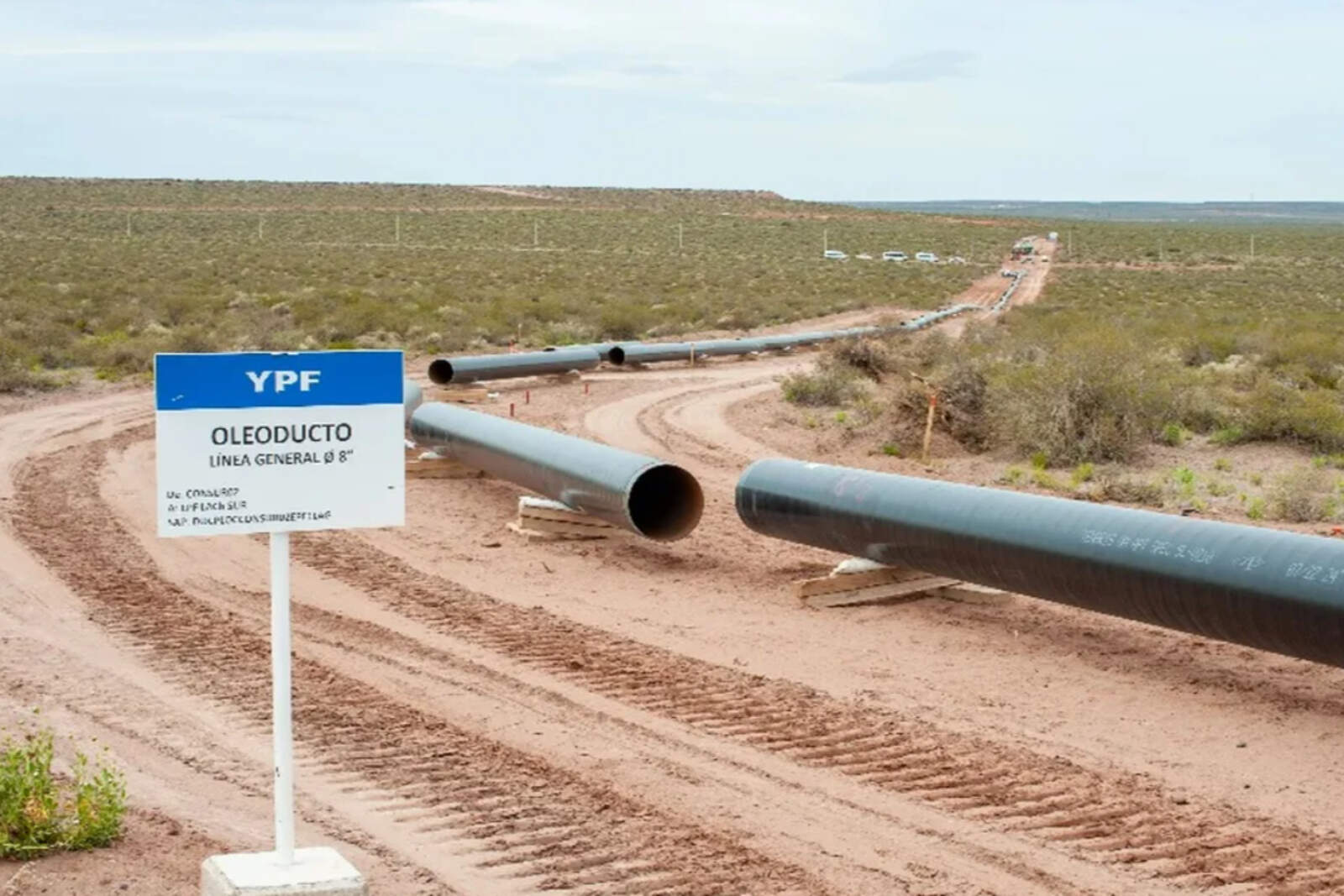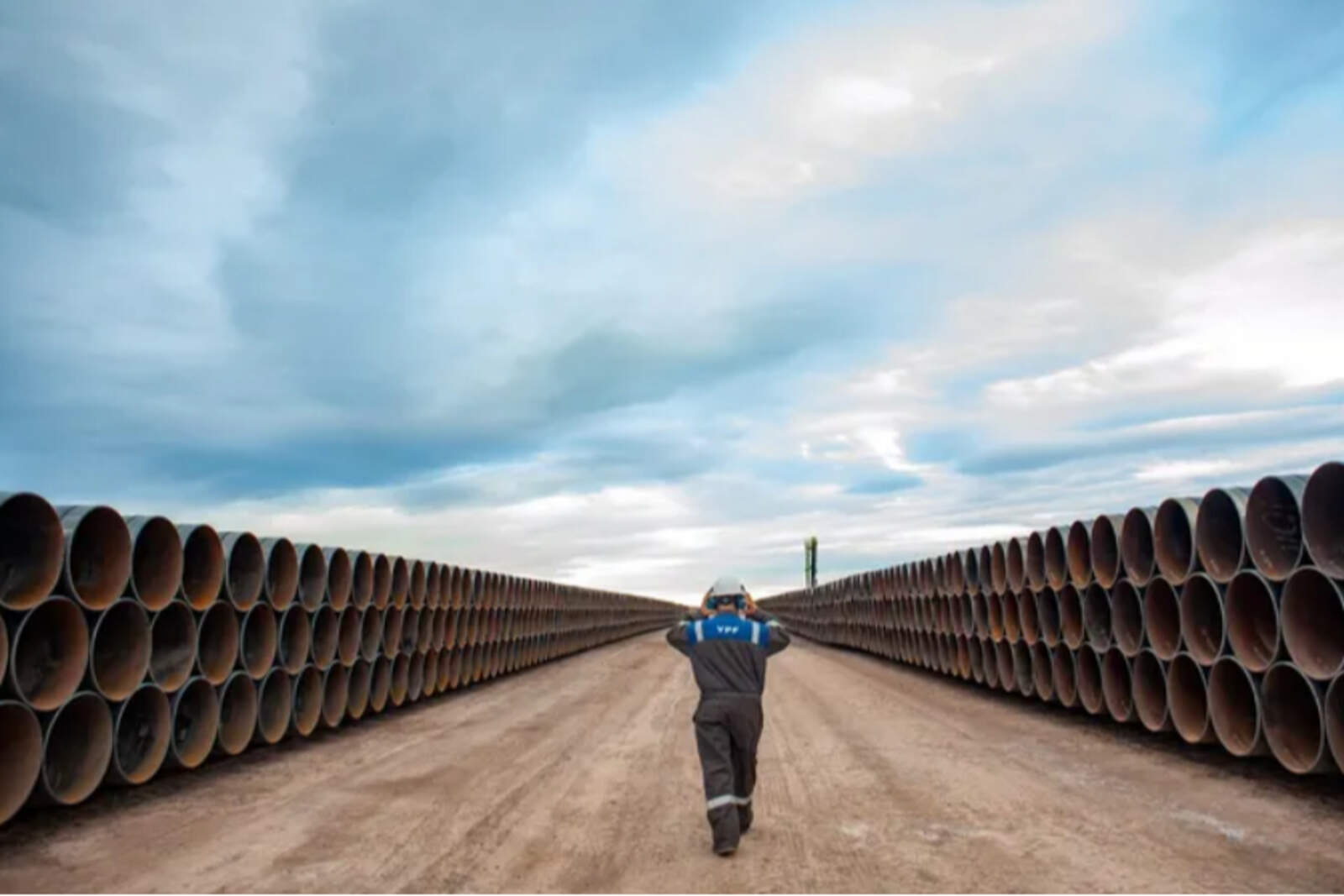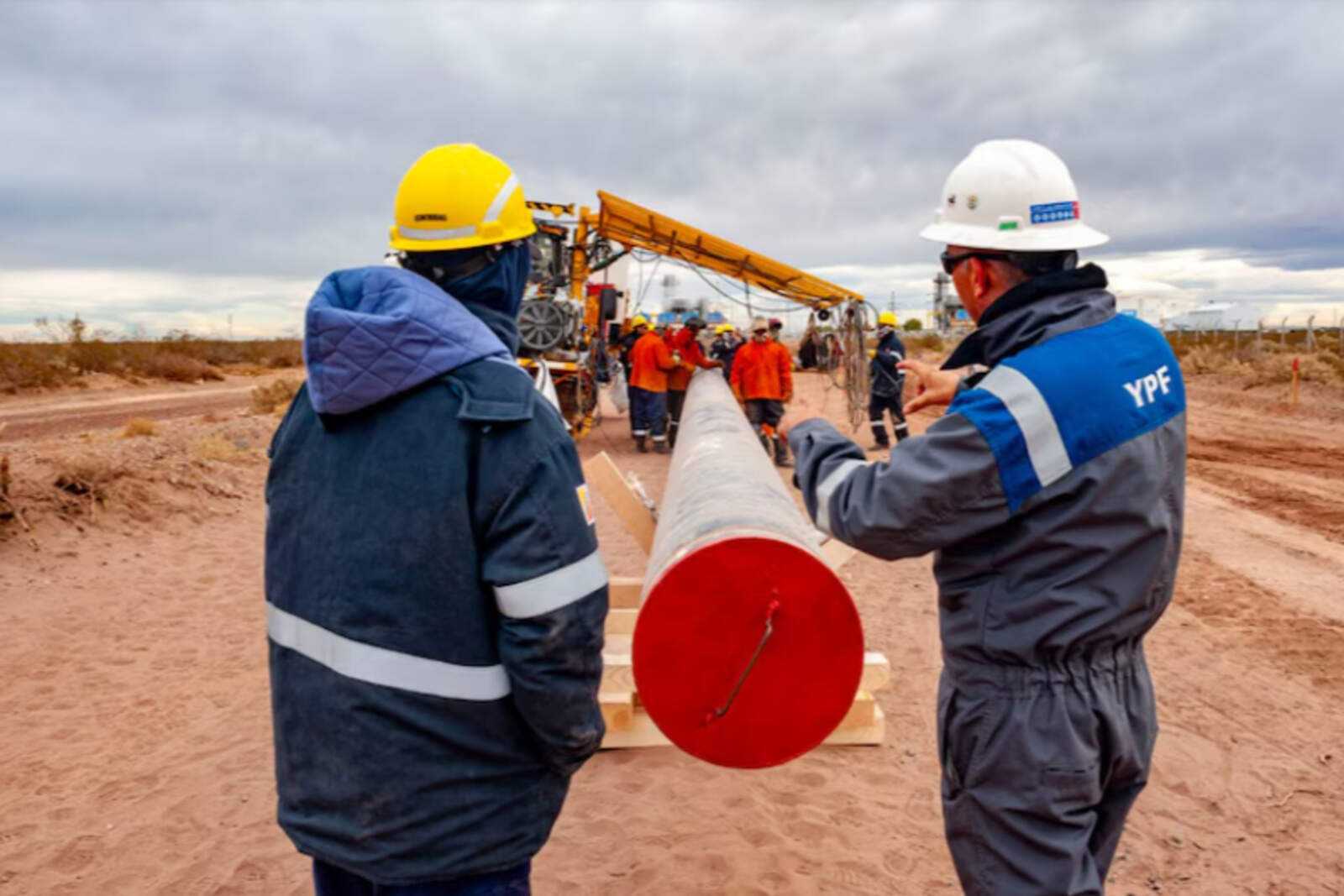A consortium led by YPF and made up of the country's leading oil companies will sign a syndicated loan for USD 1.7 billion this week to finance the Vaca Muerta Oil Sur (VMOS) pipeline, one of the most ambitious infrastructure projects in Argentina's energy sector in decades. The agreement will be finalized this Friday, according to industry sources, and the disbursement could enter the country before the end of the month.
This is the largest corporate energy financing operation in at least twenty years, with the participation of top-tier international banks such as Citi, JP Morgan, Deutsche Bank, Santander, and Itaú. This loan, which has a five-year term and a rate tied to the SOFR benchmark with a "competitive" spread, will be added to an additional USD 400 million issuance planned for 2026 and capital contributions from the companies involved.
What is the Vaca Muerta Oil Sur pipeline
VMOS is a key project that will double the crude oil evacuation capacity from the Neuquén basin to the Atlantic. The pipeline will be 525 kilometers (326 miles) long between Añelo (Neuquén) and Punta Colorada (Río Negro), where a new export terminal is being built with the capacity to operate large draft vessels (VLCC) and project Argentine crude to Asian markets.

In addition to YPF, the consortium includes Chevron, Shell, Vista, Pluspetrol, Pan American Energy (PAE), and Pampa Energía. All of them are key operators in Vaca Muerta, considered the world's fourth-largest shale oil reserve.
According to industry estimates, the pipeline will allow energy exports to reach an annual flow of USD 15 billion from 2028, which will have a decisive impact on the energy trade balance and the Central Bank's reserves.
Economic impact and BCRA reserves
Government sources highlight to Infobae that part of the dollars obtained from this financing will be sold in the foreign exchange market and a portion could enter the BCRA's gross reserves. This injection of foreign currency comes days after the Central Bank closed a Repo for USD 2 billion, so the private loan adds firepower to the official exchange rate policy.









